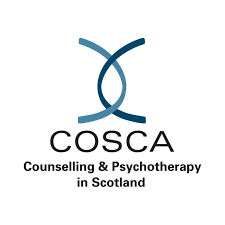The Certificate in Counselling Skills course is designed, in association with Counselling & Psychotherapy in Scotland (COSCA), for people for whom counselling skills could be useful in their normal day-to-day work or as the starting point for a change in career. Successful candidates are awarded a COSCA validated Certificate in Counselling Skills. This course is credit-rated by the University of the West of Scotland (UWS) and maps onto the Scottish Credit and Qualification Framework (SCQF) with 40 SCQF credits at level 8. It is one of the entry requirements for the MSc in Counselling & Psychotherapy at Strathclyde.
Hear students talk about their experiences of working towards their COSCA Certificate in Counselling Skills at the University of Strathclyde's Centre for Lifelong Learning.
As well as familiarising participants with the counselling approach and a range of counselling skills, the course will also examine a number of key theories of counselling practice. Successful participants will gain an enhanced understanding of the human condition and human problems.
Is this course for you?
This class will benefit a wide variety of people working in business, industry and the public sector, including:
- personnel & welfare officers
- nurses & NHS support staff
- social care and social workers
- mental health workers
- teachers
- workplace & employee counsellors
- voluntary workers in the community
- personal development
The counselling course is delivered by experienced tutors who have many years of experience of both teaching and working as practitioners. Throughout your studies, you will be supported by your tutor to ensure that your experience makes the most of your particular skills-set.
Thinking about applying for the course? Hear directly from Course Leader Pam Dawson.
Experiential course and emotional triggers
Please be aware...students will be using their own life experiences for skills practice and therefore applicants should consider if this is the appropriate time for them to undertake the course if they have recently experienced or have unresolved serious emotional issues or a traumatic event which may trigger strong emotional responses.
Please also be aware that this is a beginners training environment where the focus is on developing listening skills. Listeners are not trained or equipped to hear of especially traumatic experiences and speakers are cautioned not to treat the skills practice sessions as therapy. Moderation in sharing is a requirement of skills practice.
Attendance and study
Minimum attendance requirement (per module)
COSCA requires at least an 85% minimum attendance on each module of the course in order to facilitate progress and an award on completion. Therefore, if you miss more than two units, then you will not meet this minimum requirement and would be obliged to leave the course. It is your responsibility to ensure that you are able to meet this requirement and attend classes regularly; particularly sessions where filming, skills practice or presentations are taking place, as it will not be possible to rearrange these. Each module consists of twelve units.
Additional work for missed units:
Where students miss two units within a module and are still within the attendance requirements, then they will be asked to complete an additional piece of work for each unit they have missed to evidence private study and understanding of the missed topics. There may also be the requirement to arrange a further skills practice.
In addition to timetabled class session(s) each week, you should aim to commit a further minimum of three hours study per week to complete the course.
Non-UK Applications
We regret that international applicants (non-UK nationals), who are not domiciled in the UK, cannot be considered for any of the Counselling Skills courses as these are part-time, generally over 6-months in duration, and do not meet the minimum qualification level for a Student Visa at RQF level 7 (England, Wales and N. Ireland), or SCQF level 11 (Scotland).
Applicants may be accepted under the Graduate route visa (domiciled in the UK), so long as this is in place for course commencement and completion and all other requirements are met.
Exceptionally, if you are domiciled in the UK and you are:
- an EU, EEA or Swiss Citizen and have been approved settlement, or pre-settlement status in the UK through the EU Settlement Scheme then you can apply, and we will require an HMVI Sharecode if you receive an offer of a place.
- not an EU, EEA or Swiss Citizen then you can also apply but must evidence your right to remain in the UK by providing an HMVI Sharecode if you receive the offer of a place.

